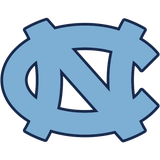
Emmert: North Carolina law could make NCAA turn away
HOUSTON — For the second straight year, NCAA President Mark Emmert faced questions at his Final Four news conference about a state's religious exemption law that critics say allows discrimination against gays, lesbians and others.
And for the second straight year, Emmert said the association is prepared to refrain from doing business in that state and others that create what it considers unwelcoming environments for student-athletes, coaches and fans.
Last year, Indiana was the target of Emmert's remarks. This year it was North Carolina. With several states working on similar proposals, the NCAA has bound itself to a stance and an issue that shows no signs of going away. That could even lead more to a more proactive approach in the future by the NCAA to stop these laws from being passed.
"We're trying very hard to be situation-specific, to represent the views and values of intercollegiate athletics and higher education aggressively and to make people understand that we think some of these laws are movements in a direction that are not supportive of what we stand for and make it very, very hard, if not impossible, for us to operate in those states or those municipalities," Emmert said Thursday.
Last year during the week leading up to the Final Four in Indianapolis, Emmert and the NCAA were pulled into a contentious debate about an Indiana law that critics feared would lead to discrimination against members of the LGBT community.
North Carolina is now receiving similar attention for a law that has drawn many of the same criticisms.
The law approved March 23 by the North Carolina legislature and signed by Gov. Pat McCrory was a response to an impending ordinance in Charlotte, North Carolina, that in part would have allowed transgender people to use the restroom aligned with their gender identity.
McCrory has defended the law, saying the public has an expectation of privacy while using restrooms and locker rooms and shouldn't have to share them with someone who has anatomy different than theirs. A federal lawsuit has been filed to overturn the law, and more than 100 company executives have signed a letter delivered to McCrory calling the law discriminatory and demanding it be repealed. Emmert said he has spoken with McCroy.
The North Carolina state law overturned Charlotte's ordinance and further prevents other local governments from passing rules that protect gays and lesbians and transgender people from discrimination at hotels, restaurants and stores. The law also directs public schools, state agencies and University of North Carolina campuses to limit men's and women's multi-stall bathroom use only to people of the same biological sex.
In Houston last year, voters overturned in a referendum a similar bathroom ordinance that city leaders approved.
Missouri is embroiled in a similar fight over a proposed religious freedom amendment to the constitution and Mississippi just this week passed a sweeping so-called religious liberty bill.
South Carolina President Harris Pastides, the chairman of the Division I board of directors, said he thinks the membership is "inching toward a more proactive stand on this issue."
"It is a consideration for choosing locations for post-season competition. To try to be more proactive is commensurate and compatible with NCAA core values, but values of all member institutions," Pastides said. "I'm sensing among the membership and the board a greater interest in making our viewpoints and values more widely known. How that plays out on Main Street around the 50 states, we'll have to wait and see. But I think it's something that is a very, very important issue for us all."
The NCAA has numerous championship events scheduled to be held in North Carolina over the next three years, including first- and second-round men's basketball tournament games in 2017 (Greensboro) and Charlotte (2018). Cary is set to host the Division I women's soccer finals and there are several Division II and III events already on the calendar.
North Carolina coach Roy Williams said he was hesitant to speak in detail about the law because he did not know enough about it, but he did say he hoped it would not put the state in a "bad light."
"The University of North Carolina and Roy Williams and our basketball program is about diversity, and always will be," Williams said. "I hope that we always include everybody involved."
Emmert also addressed:
● Daily fantasy sports companies FanDuel and DraftKings suspending their college games.
"It is a very good step forward. We hope collectively we can get colleges, high schools, little leagues, whatever, anything other than professional sports, out of this arena," he said.
● On the North Carolina academic misconduct investigation, Emmert said that it is winding down.
"The university's been very cooperative, will be at a place where my staff can issue allegations or notice of allegations in the very near future. Other than that, it is premature to say when that will occur, but they're certainly getting to the end of the road on it."
● On Syracuse being in the NCAA tournament a year after being sanctioned for violations.
"The reality is, is that the Committee on Infractions handed down ... their sanctions on Syracuse University. The university dealt with those sanctions and this group of young men that are playing right now had nothing to do with any of those violations."


